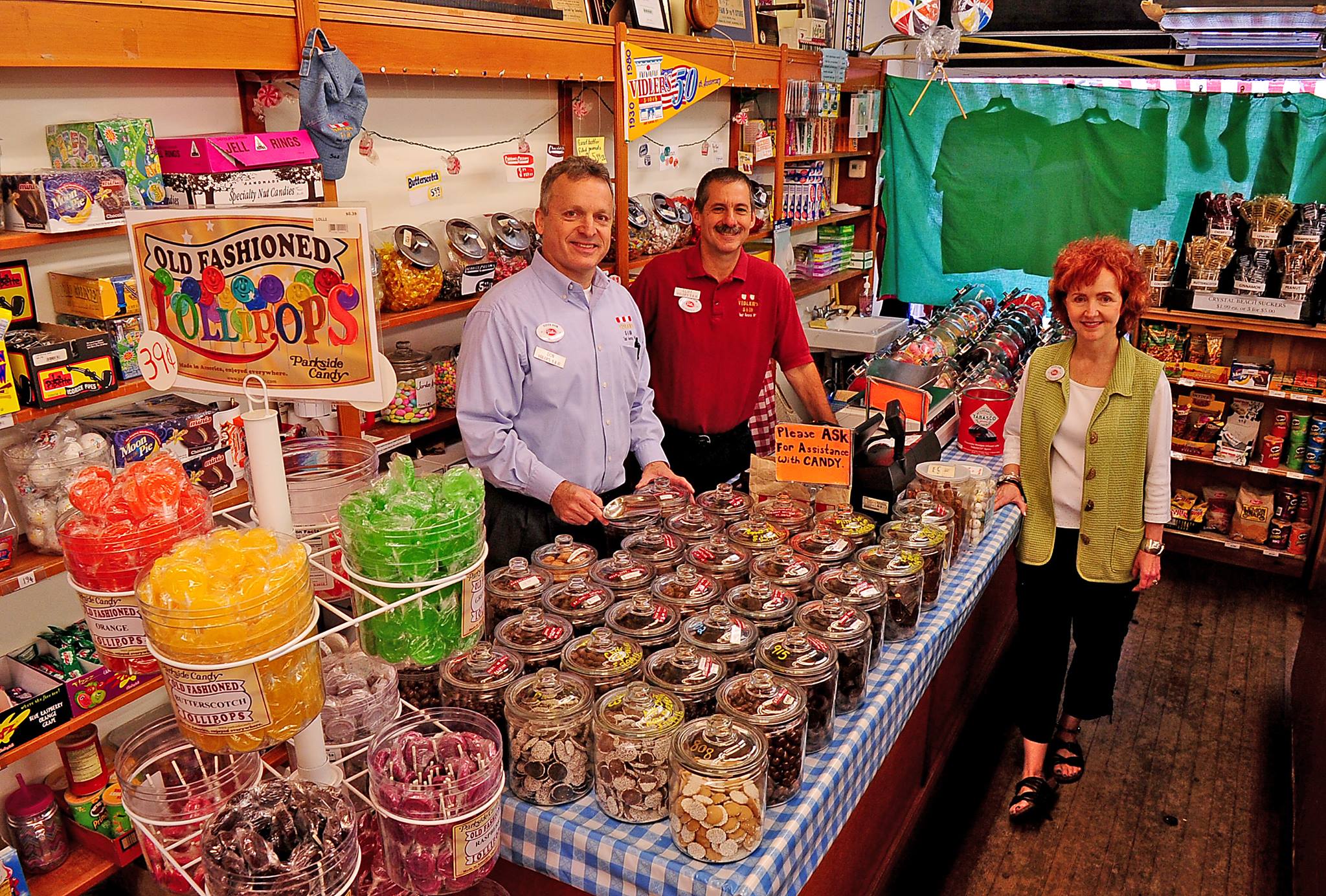 By Steve Cichon
By Steve Cichon
steve@buffalostories.com
@stevebuffalo
Either you love them or you hate them, but the thought of never eating a Necco wafer again was too much for many people around the country to bear.
When word that bankruptcy might mean the end of the line for Necco, there were some calling the reaction “The Great Necco Wafer Panic.”
“A lady came in and bought a hundred on them the day we found out that they were in trouble,” says Don Vidler, who has spent a lifetime on both sides of the candy counter at Vidler’s 5&10 in East Aurora.

No matter how old you are, it’s tough to just walk by the candy counter just inside the front door under Vidler’s red awning.
“It’s certainly one of the main draws here,” says Vidler. “When people come in, it catches their eye right away, all the colors and the glass jars and everything.”
And for now anyway, it looks like rolls of Necco wafers will continue to be among those gleaming packages.
The future still isn’t certain– but it is brighter– after Spangler, a fourth-generation family-owned company and the maker of circus peanuts and Dum Dums lollipops had the winning bid of $18.8 million for Necco in a bankruptcy court proceeding last week.
Spangler has since said, however, that long-term plans for lines like Necco wafers haven’t been made yet. It might seem unimaginable that they’d go away, but it’s possible, says Vidler, who sees the disappointment in people’s eyes when they find out their favorites are no longer made.
“A lot of people want Clove or Black Jack gum. They don’t make those anymore,” says Vidler. Another candy with a huge following that is no longer manufactured– Sen Sen. There was a run on the red envelope of tiny licorice mints when production was stopped a few years ago.
The good news is, the shelves at Vidler’s seem to go on for miles with candy that we used to love, but just don’t see as much anymore. Things like butterscotch, peach stones, maple buns, and Choward’s Violet mints.

Just as Necco’s possible demise was a national news story, Buffalo was shaken by news of Vidler’s vintage popcorn machine running out of pop a few years back.
That’s no problem now.
“The popcorn machine is back up and running consistently, which is good,” says Vidler. “We’d have a riot in East Aurora if the popcorn machine’s not working. And Sandy the mechanical horse is still working, too. We had her retrofitted with a new saddle, all repaired and redone.”
The look of glee on the face of a kid on rocking on that horse, the smell the popcorn, the sound of the creaking wood floor… Just like all those penny candies which we once loved (and still do at Vidler’s), Vidler says there are some things you just can’t experience through a computer screen.
“I always tell people, you can’t experience Vidler’s online, you have to come here to see it.”


